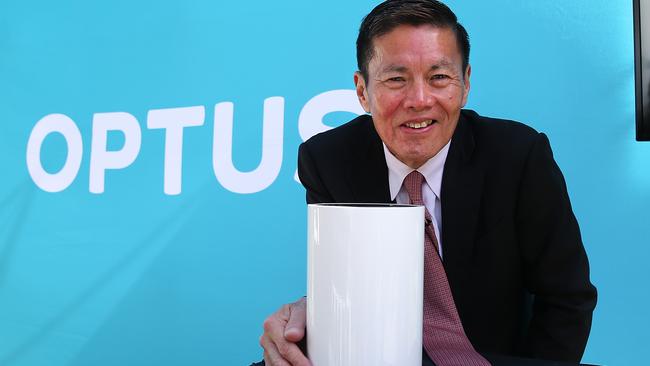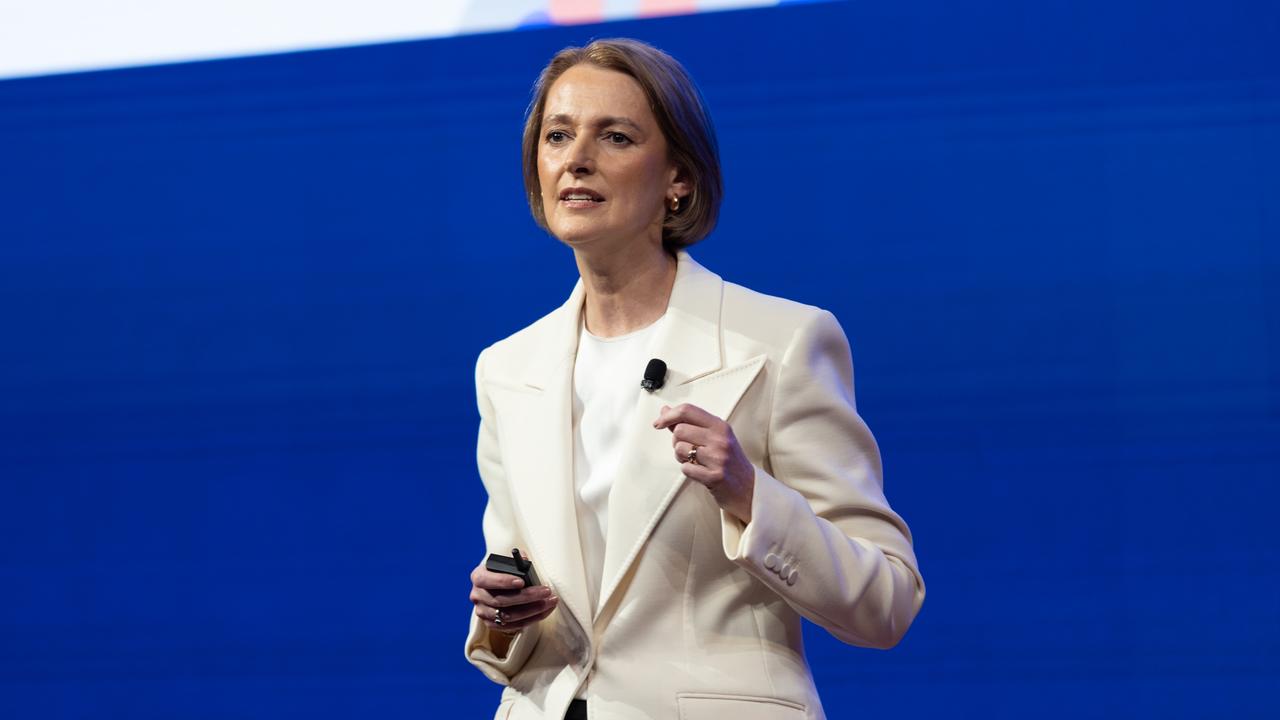Australia will be 5G proving ground, says Optus’ Allen Lew
Optus says Australia will be a proving ground for recently-minted global 5G mobile services standards.

Australia is shaping up as an early proving ground for 5G technology, with Optus boss Allen Lew saying that it’s going to be the first market with two functional 5G mobile networks by the end of 2019.
Speaking to The Australian at the Mobile World Congress 2019 in Barcelona, Mr Lew said that Australia was the only market where standardised 5G technology was being put to action.
“The American (telcos) have got a lot of press on launching 5G services for consumers but they have implemented using pre-standards 5G,” he said.
“We are the first to use the 3GPP standard, which was released last September, so from a global standpoint we are the first in the world to use a proper 5G standard,” he said.
Mr Lew’s comments came as Telstra counterpart Andy Penn said that Australian consumers probably wouldn’t be asked to pay more for 5G services.
“We haven’t disclosed our pricing on 5G yet. There are opportunities to provide customers with extra services, but I think that it’s unlikely that core connectivity on 5G can be priced differently,” he said.
Optus and Telstra are looking to outdo each other in the emergent 5G market in Australia, with the Singtel-owned telco the first to launch a 5G home broadband product last month.
Link.
Meanwhile, Telstra is aiming to be the first telco to get 5G smartphones into the hands of Australian consumers and has secured an exclusive deal to sell the Samsung Galaxy S10 5G and a string of other handsets to consumers.
Optus is also adding 5G phones to its devices portfolio, with the telco to offer Chinese phone maker’s 5G handset when it hits the market.
However, Mr Lew said that 5G smartphones will take some time to deliver value to consumers and Optus’s immediate focus was to deliver 5G connectivity to Australian homes as quickly as possible through its fixed wireless service.
“We are starting with what we believe is the first commercial opportunity for 5G, and that gives us an opportunity to monetise our investment in a small way,”
He added that it also gives Optus crucial data to help it scale the service as more 5G towers come online.
“We have done a lot of testing in lab but now we take it out (into open) and we think the early lead that we have right now will become bigger later down the line.”
Optus has so started taking orders from customers for the fixed broadband service but Mr Lew said that the telco was happy to take its time
“We have activated a few customers and we are testing some of these connections, it’s going to be a slow ramp up because want to make sure the experience is good,” he said.
Access to spectrum is crucial to how quickly the telcos can leverage their investment in networks and while Telstra has won an ‘early access’ licence the 3.6 GHz spectrum it bought last year, Optus has its eyes set on the millimetre wave spectrum- between 26 gigahertz and 28 gigahertz — to further reinforce it wireless broadband capabilities.
With the Australian Communications and Media Authority (ACMA) mulling plans to sell millimetre wave spectrum, Mr Lew said that the federal government needs to think carefully how the spectrum in made available.
“The spectrum will make a huge difference (for wireless services) and the process needs to be done very carefully,” he said.
“This is the last opportunity for us to get from the pole on the street to a customer’s house in what I believe will be a reasonably cost effective solution and save a lot of issues.”
The comments further reinforces the ambition of telcos to bypass the National Broadband Network, a $51 billion project that Mr Lew said has failed to deliver on its original promise.
“A lot has been said about the NBN, which hasn’t met its original aspirations. It was meant to be fibre to the home and deliver hundreds of megabits of speed, and it’s not doing that.”
“Writing down the NBN doesn’t solve the problem that we are not getting very fast broadband speeds,” he added.
However, the telcos will face staunch resistance from satellite operators like Viasat for access to 28Ghz spectrum in Australia, with the US company warning that it may have to rethink its commitment to the Australian market if the spectrum in sold.
The company provides ground infrastructure for NBN Co’s Sky Muster satellites and also works with Qantas to provide in-flight Wi-Fi on domestic services.
Mr Lew said that the overall aims of the auction should be to provide the best outcome for customers and potentially a way to connect homes that are poorly served by the NBN
“The spectrum is the asset of the country and all I am saying is that the government needs to think how new technologies to fix the NBN first, which hasn’t lived up to the expectations, before it’s auctioned away to the private sector.”
Supratim Adhikari travelled to MWC 2019 as a guest of Oppo.



To join the conversation, please log in. Don't have an account? Register
Join the conversation, you are commenting as Logout